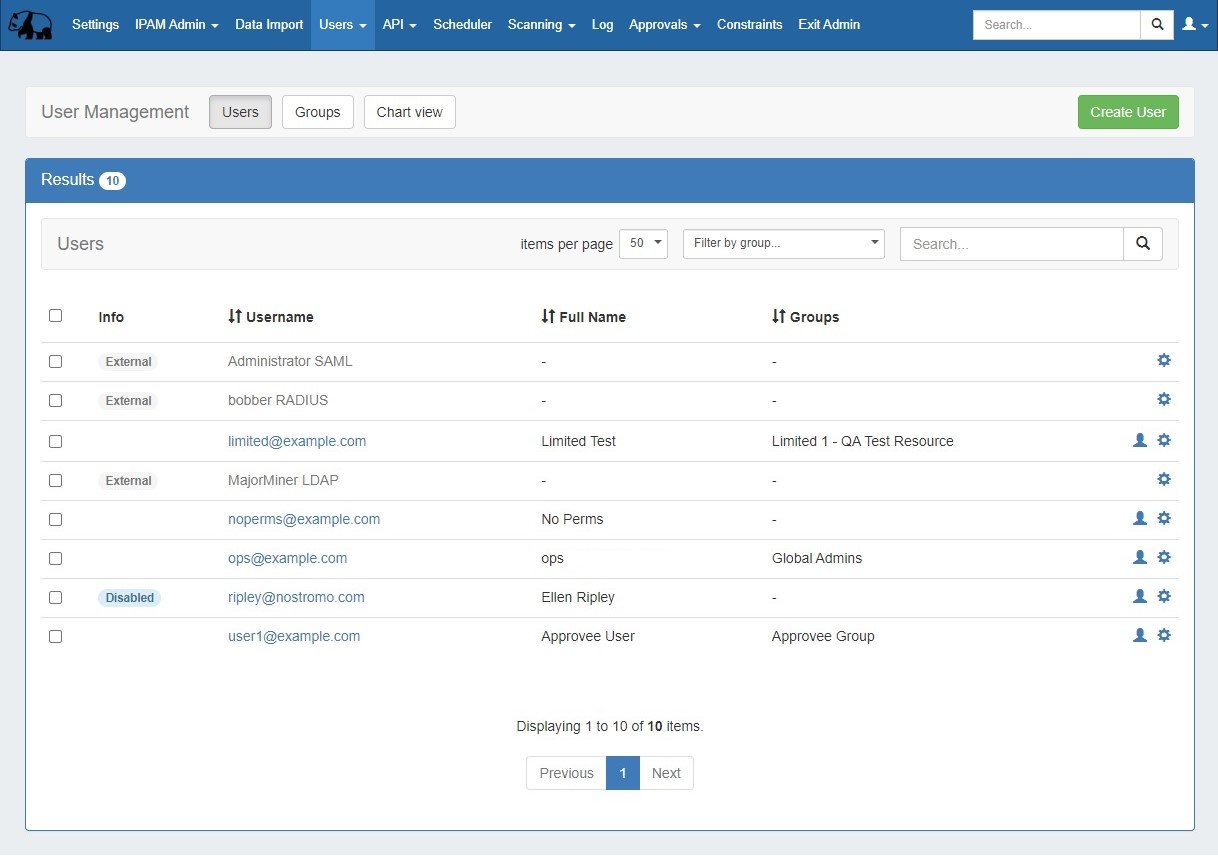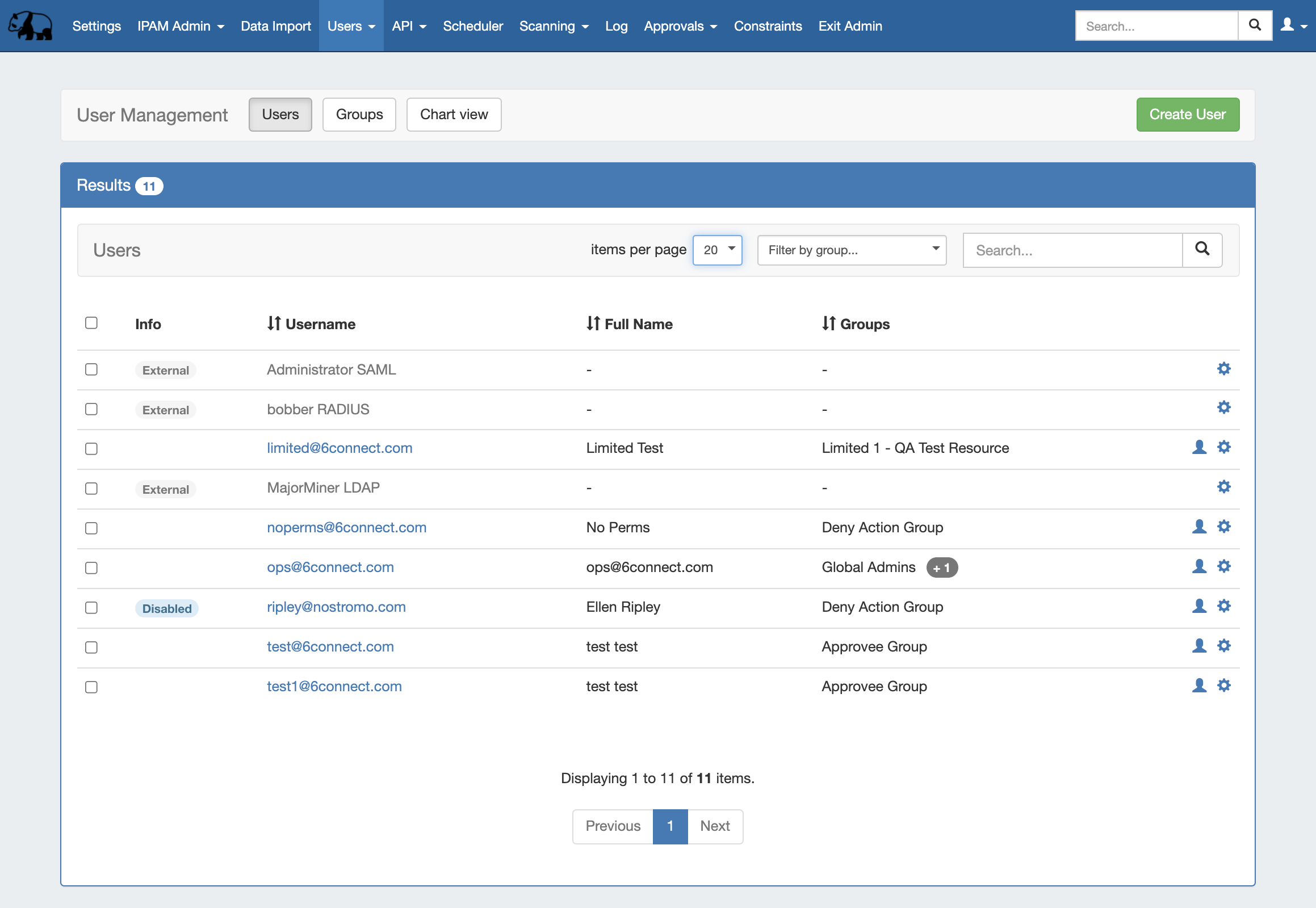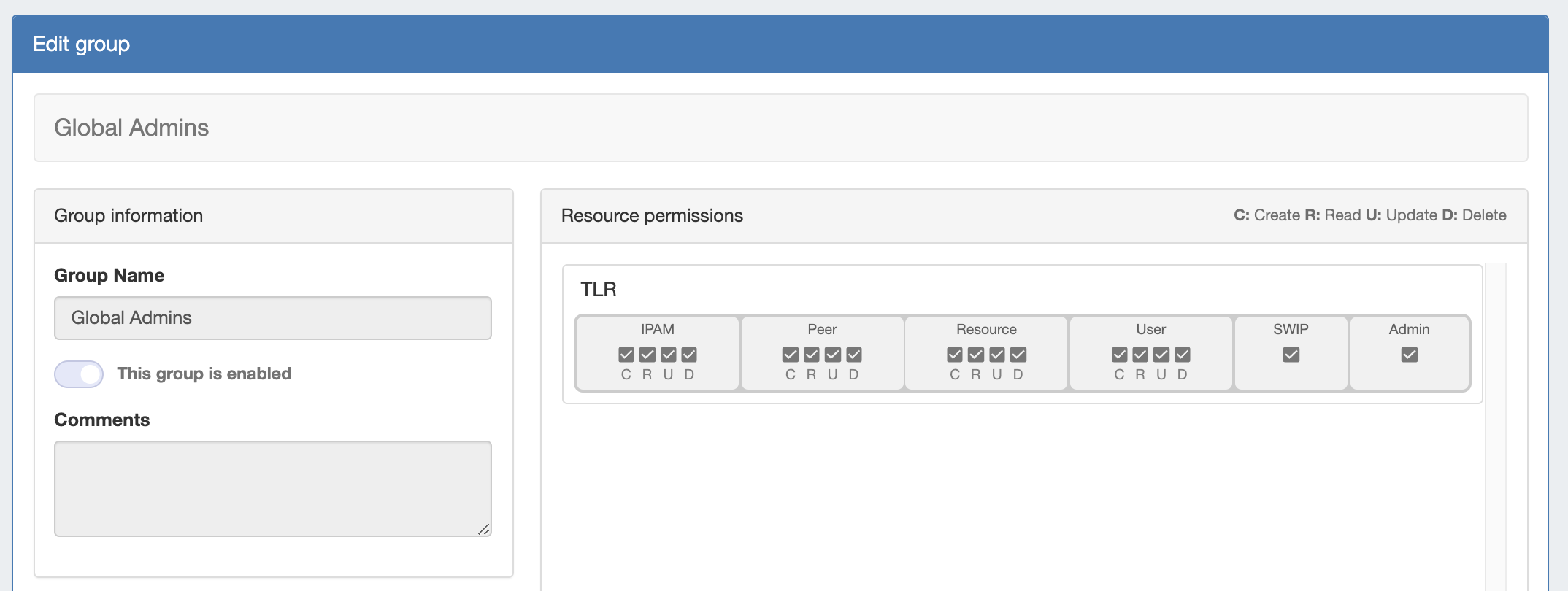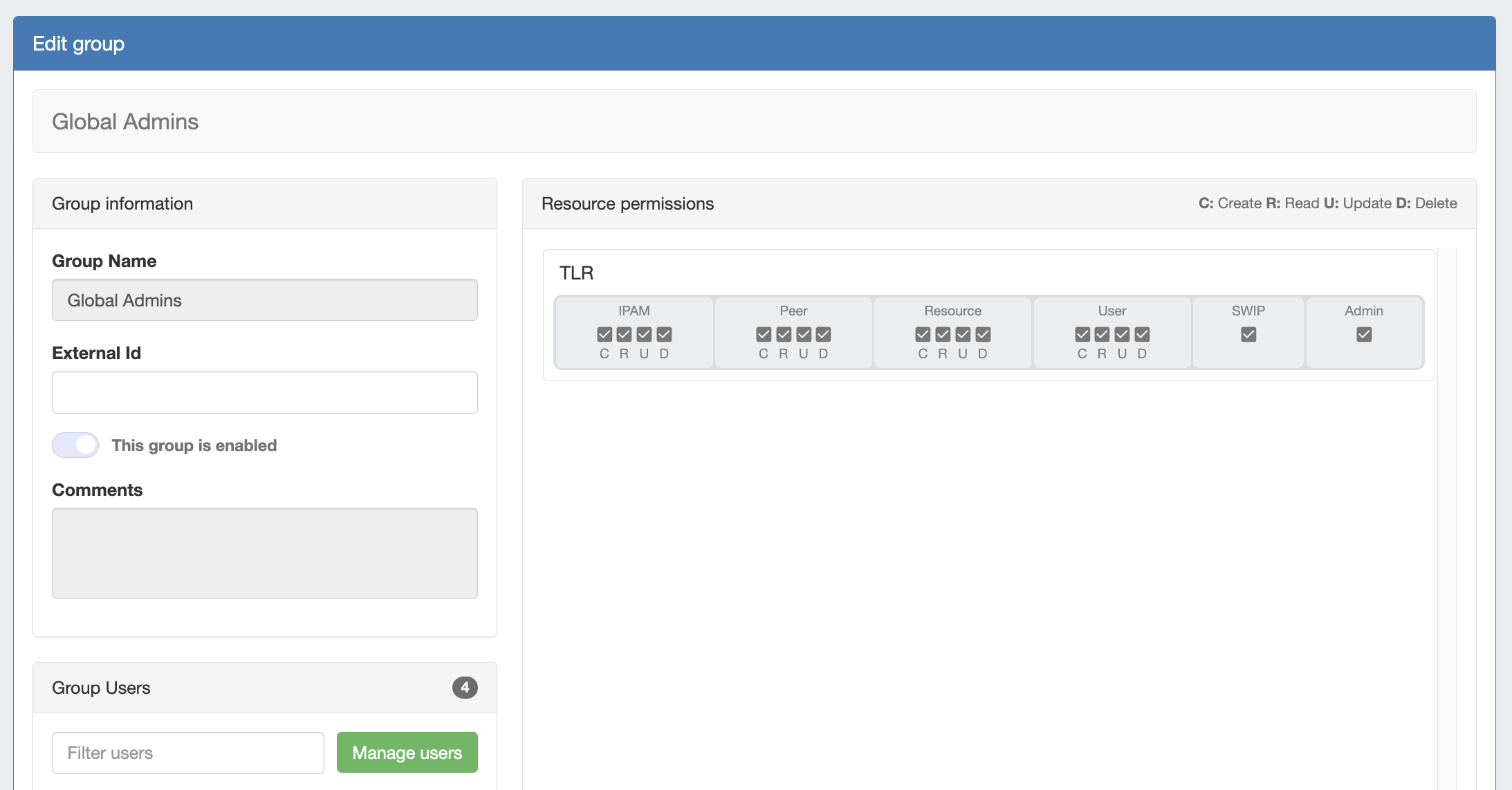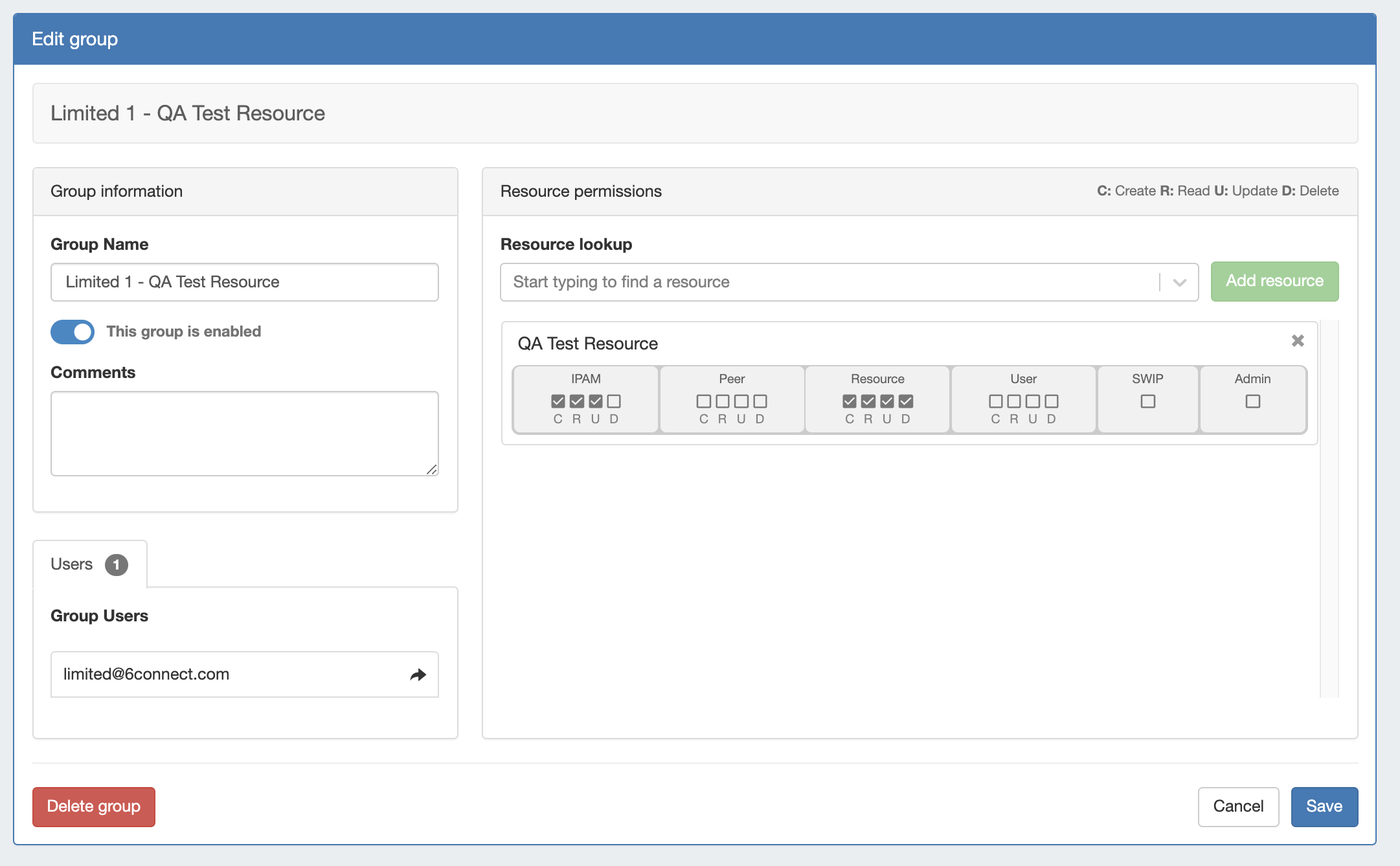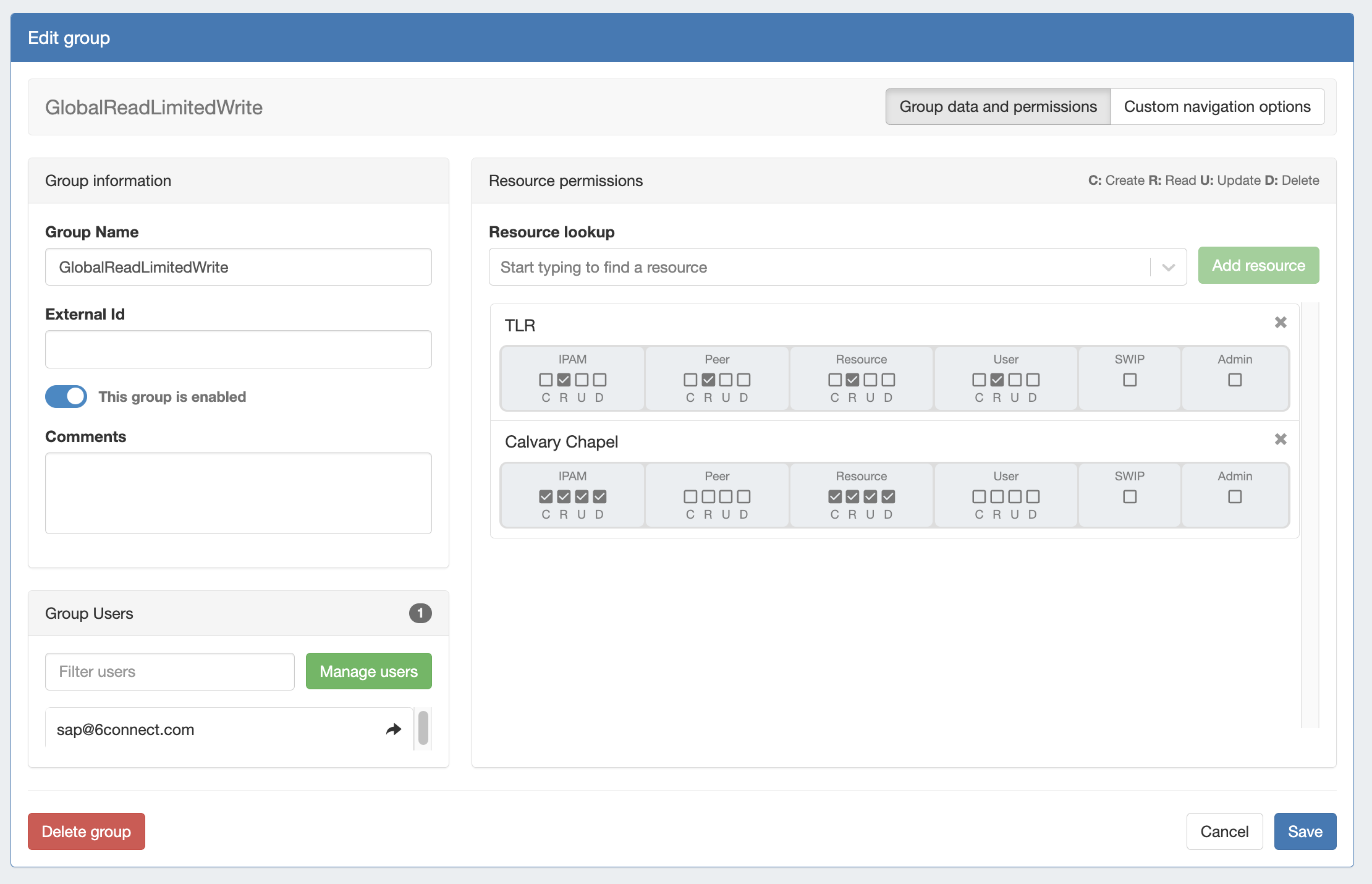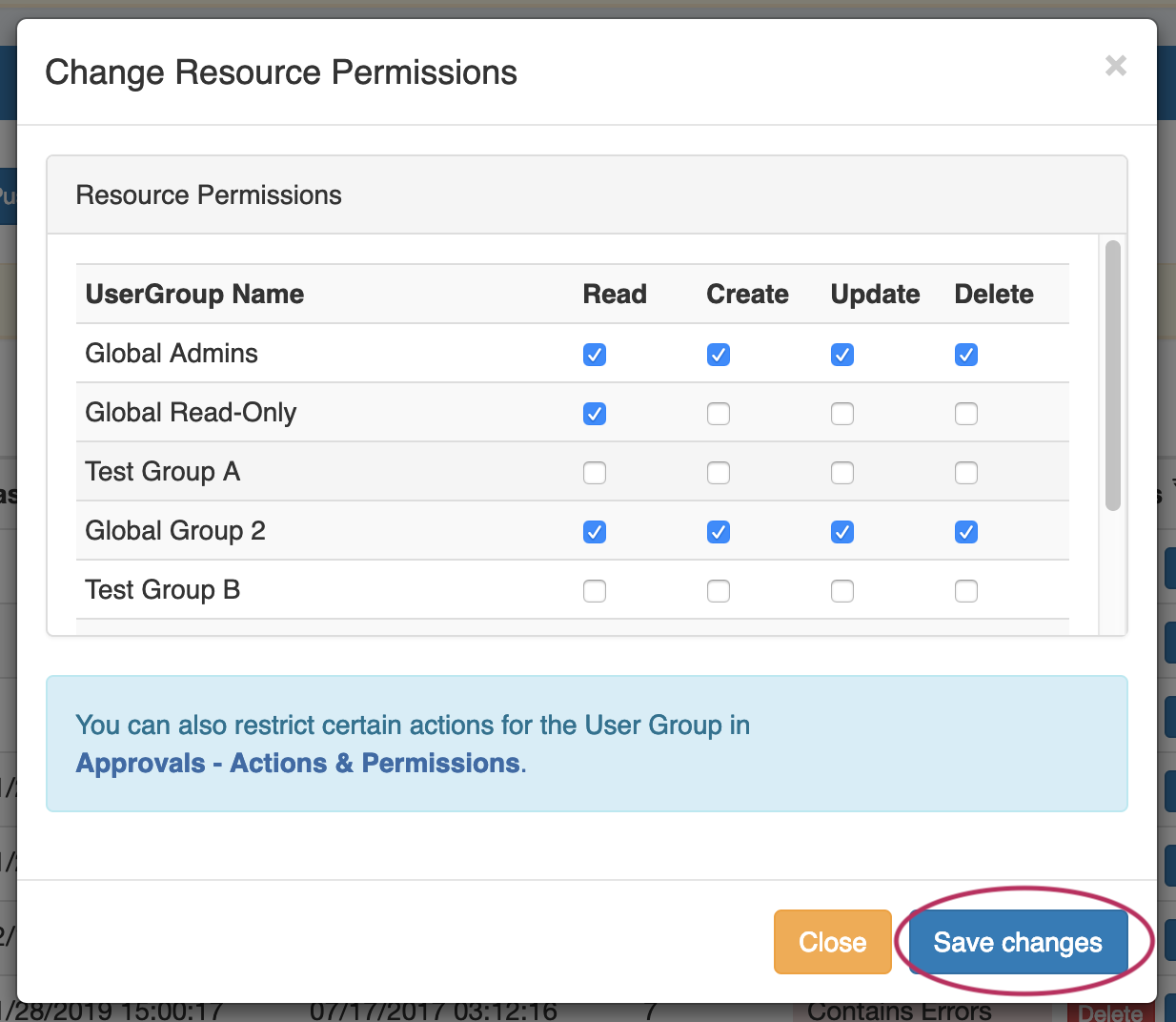Users
| HTML |
|---|
<div id="google_translate_element"></div>
<script type="text/javascript">
function googleTranslateElementInit() {
new google.translate.TranslateElement({pageLanguage: 'en'}, 'google_translate_element');
}
</script>
<script type="text/javascript" src="//translate.google.com/translate_a/element.js?cb=googleTranslateElementInit"></script> |
Users
Users & Permissions is accessed from the Admin screen under the Users tab. Here, you will find tools for adding and managing permissions groups, users, and running queries for verifying a user's specific permissions.
| Table of Contents |
|---|
The Permissions Structure
The Permissions structure in ProVision is designed to give you as much flexibility as you need to accommodate most use cases. When mapping out the permissions structure for your organization, keep in mind who you want to access to application:
...
Resources & Access: Inside a Group, Resource access may be set to Global TLR (applies to all Resources), or to the specific Resource level (applies to only the selected Resources). For each Resource selected, access permissions can be set with C/R/U/D permissions under each ProVision module area (IPAM, DNS, Resource, Peering).
As a whole, this makes up the ProVision permissions system. The Permissions system allows you to fine-tune access to resource data to be as detailed as you need.
Permission Levels
Global Permissions
When you see a reference to a "TLR" - that is a "Top Level Resource". This Is the primary Resource under which all other resources fall under.
By default, all ProVision instances include a "Global Admins" group with full "TLR" permissions, and a "Global Read Only" group with only read permissions on "TLR".
...
See Global Permissions for more details on configuring these elements.
Resource Permissions
An administrator can also set respective module and C/R/U/D permissions for a given Resource (single or multiple). These permissions fall under Groups.
A Group is configured for the selected Resource permissions, and User accounts are associated with the Group.
...
See Resource Permissions for more details on configuring these elements.
Permission Shortcut Button ("Perms Button")
In DNS and DHCP, a shortcut permissions button ("Perms") is available on a per-item level, accessible only to Admin users.
...
Edit the CRUD permissions for any ProVision user group by clicking the checkbox for the desired group and permission type.
When done, click "Save Changes". The permission changes will be also be reflected in the Admin User tab Group settings.
Table of contents:
| Children Display |
|---|
